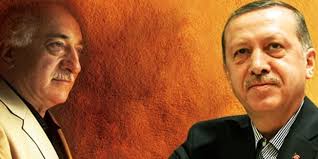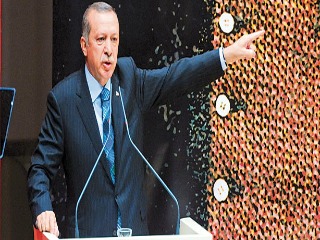The Islamic Civil War in the Turkish State Escalates
By Halil M. Karaveli (vol. 6, no. 23 of the Turkey Analyst)
The civil war in the Turkish state is unprecedented in the history of the republic. Prime Minister Erdoğan is preparing to deliver a final blow to the “cemaat” and may succeed in asserting his control over the state apparatus. But Erdoğan’s political fortunes depend on convincing the conservatives that his party is “clean”, and that Fethullah Gülen’s Hizmet movement is a “gang” in collusion with hostile foreign powers against the “pious” government. While it was easy to mobilize the conservatives against the Gezi protesters, it may prove more challenging to discredit what used to be fellow Islamic conservative allies.

Erdogan, the Hizmet Movement, and the PREP School Crisis: Turkey Enters a New Power Struggle
By Svante E. Cornell (vol. 6, no. 22 of the Turkey Analyst)
With the crisis resulting from the AKP government’s decision to close down the preparatory schools in Turkey, the growing rift between Prime Minister Recep Tayyip Erdoğan and Fethullah Gülen’s Hizmet movement now appears beyond repair. Unlike before, the confrontation is now out in the open. The outcome of the confrontation will go a long way toward determining Turkey’s future course, both domestically and internationally. It is, not least, going to define what kind of relationship Turkey will have with the West.

What the Columnists Say
The Taksim/Gezi Park protests, and their violent dispersal by the police in May-June, continue to cast a deep shadow over the political life in Turkey, and the political commentaries reflect this fact. Notably, the protests and their handling by the AKP government has provided new ammunition in the ongoing power struggle between the ruling AKP and the movement of the Islamic preacher Fethullah Gülen, deepening their mutual distrust. Mehmet Baransu in the daily Taraf reports that many in the leadership of the AKP think that the Gülen movement was behind the Gezi protests. Meanwhile, it is noted that the conservative business community in Anatolia, which has been instrumental in bringing the AKP to power, is concerned that the confrontational policies of the government – at home and abroad -- are going to harm the stability and economic development of Turkey. Commenting the verdicts in the Ergenekon trial, Murat Belge, a leading liberal intellectual, expresses doubts that the trial has touched anything but the “tip of the iceberg”, while Fuat Keyman, another liberal commentator, speculates that Prime Minister Erdoğan must in fact be deeply troubled by the verdicts that contribute to the perception abroad that democracy in Turkey is in retreat.



